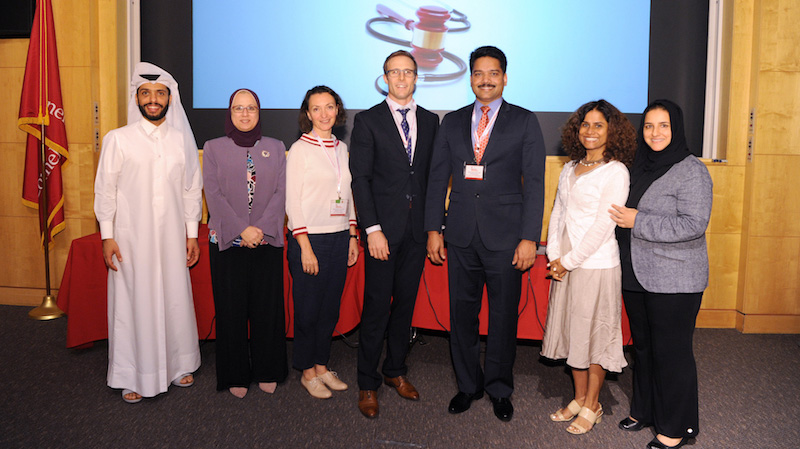The regulation of complementary and alternative medicine (CAM) in Qatar was discussed during the latest instalment of Law and Medicine Series at Weill Cornell Medicine-Qatar (WCM-Q).
The symposium brought together local and international legal and healthcare professionals to discuss the current laws regulating the practice, practitioners and the products of CAM in Qatar, integrating it into conventional healthcare systems, and the opportunities and challenges it presented.
 Entitled ‘Complementary and Alternative Medicine in Qatar: A Regulatory Perspective’, the symposium featured a series of presentations and a panel discussion. Dr Ravinder Mamtani of WCM-Q, gave an overview of common CAM therapies and discussed evidence-based approaches to integrating complimentary medicine with conventional healthcare delivery. Dr Jayarajan Kodikannath, Academy Director of the Kerala Ayurveda Academy in India and San Francisco, spoke about the practice of Ayurveda and the regulatory and licensing efforts underway to integrate its practice in conventional healthcare systems in the US and in India.
Entitled ‘Complementary and Alternative Medicine in Qatar: A Regulatory Perspective’, the symposium featured a series of presentations and a panel discussion. Dr Ravinder Mamtani of WCM-Q, gave an overview of common CAM therapies and discussed evidence-based approaches to integrating complimentary medicine with conventional healthcare delivery. Dr Jayarajan Kodikannath, Academy Director of the Kerala Ayurveda Academy in India and San Francisco, spoke about the practice of Ayurveda and the regulatory and licensing efforts underway to integrate its practice in conventional healthcare systems in the US and in India.
Qatar Council for Healthcare Practitioners Acting CEO, Dr Samar Aboulsoud, explained the regulatory framework underway in Qatar for complementary medicine practitioners and products. Dr Sunanda Holmes, General Counsel and Chief Compliance Officer of the American University in Cairo, meanwhile, discussed the framework of CAM regulations set out by the World Health Organisation and the European Union, and the potential challenges in regulating CAM by licensing practitioners and products.
Dr Holmes said that it is important that complementary medicine services and products are well-regulated through education, training programmes and collaborative efforts among all healthcare practitioners from both the conventional and CAM communities.
Patient safety and effective treatments are of paramount importance to all who are involved. This symposium aims to explain how the current and proposed regulatory framework of CAM practitioners and products in Qatar will lead to health, wellness and patient-centered care.’
A number of practitioners of complementary medicine also presented perspectives of their own practice and the licensure efforts underway for their practice. A presentation by Dr Stella Major, also of WCM-Q, gave a conventional healthcare provider’s perspective of CAM, emphasising the importance of good communication to ensure that patients feel comfortable about CAM therapies, so that it can be safely incorporated into the overall care package, if appropriate.
The symposium concluded with a panel discussion and a Q&A session on the relationships between CAM and conventional healthcare practitioners, focused on ways to improve patient care by safely integrating the two models.
The Law and Medicine series at WCM-Q is accredited locally by the Qatar Council for Healthcare Practitioners-Accreditation Department (QCHP-AD) and internationally by the Accreditation Council for Continuing Medical Education (ACCME). For updates and more information, visit qatar-weill.cornell.edu.





